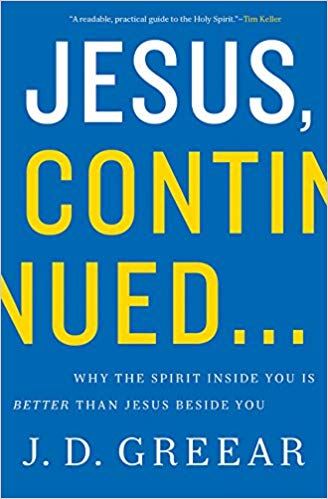Jesus Continued...
I have a friend — I’ll call him Brennan — who served for several years as a leader in our church. A bright young college senior, Brennan was well-spoken, well-regarded, and a leader both on his college campus and in our church. But Brennan had a dark secret he had shared with no one. He had a same-sex attraction that led him into pornography and eventually to a string of hook-ups with random guys he met in Internet chat rooms. By the time Brennan finally confessed his sin to his campus leader and me, he was a broken young man. He had already desperately tried everything he could think of to fix himself. He had memorized Scripture, made vows, and even gotten rid of his Internet connection. Yet his “problem” was getting worse. So together, we plotted out a course of recovery that involved professional counseling, more Scripture, and high accountability. Brennan progressed a little, and for brief seasons it looked as if he was gaining victory . . . only to fall back down into the same dark valleys. Eventually he checked himself into an intensive ministry that helps believers get control of the lusts of their flesh. Brennan showed up at my house eight months later, noticeably different in his demeanor. I asked him what he had learned. “I didn’t learn anything new,” he said. “I learned to lean on the Holy Spirit. I always knew he was in there, but I didn’t know how to relate to him.” Brennan told me he had been surprised at how frequently the counselors at this ministry, all of whom had come through their own struggles and sexual addictions, referred to the Holy Spirit. They talked about him like he was real, like someone they met with daily. For them, the Spirit was not a theological concept, but a Person with whom they interacted and on whom they depended. Brennan, who had grown up in Baptist and Reformed circles, knew all about the Holy Spirit. He knew the Holy Spirit came into his heart when he trusted Christ and that he was in there, helping out somehow in the sanctification process. But never, he said, had he been taught to seek the Holy Spirit like these believers did. They sought his presence as if their lives depended on him. Brennan began to understand that he needed more than “right beliefs” to subdue these lusts of his flesh. He needed power. Resurrection power. And a constant Companion who would always be there to help. “And this discovery,” he said, “marked a turning point in the struggle with my sin.” He added, “These temptations are still with me, and I suppose always will be. But I have found in the Spirit of God a power more potent than the lusts of my flesh. Being filled with God the Holy Spirit has done more for me than all the seminars I sat through or coping techniques I mastered.” Do you know the Holy Spirit in this way? Just before Jesus ascended to heaven, he told his disciples, “I will not leave you as orphans; I will come to you” (John 14:18, emphasis mine). At the ascension Jesus did not become an absentee God. He, as God, simply came to his disciples as a different Person. The mystery of the Trinity is that only one God exists in three Persons. Each person is distinct from the other two, but in experiencing one, you experience the one God who is them all. (If your mind feels as if it just exploded, that’s okay. Christian theologians have been wrestling with that for centuries!) In the same way that he could tell his followers, “If you have seen me, you have seen the Father,” so it would be true for him to say, “When you hear from the Spirit, you hear from me.” And, remarkably, he told his disciples that his presence in them would be even better than his presence beside them. Wow. Think about that. This Spirit, he said, would bring to their minds all that he had said and taught. In other words, he would make the Word of God come alive in their hearts, applying that Word to their questions and doubts. The Spirit would lead them through the Word, and they would gain the ability to obey that Word by his power. J. D. Greear, Jesus, Continued...: Why the Spirit inside You Is Better than Jesus beside You (Grand Rapids, MI: Zondervan, 2014). |
If you are wanting to do a particular passage or book study and can't find it, feel free to email me at josh@joshhunt.com21 Laws of Discipleship -- the book -- |



















